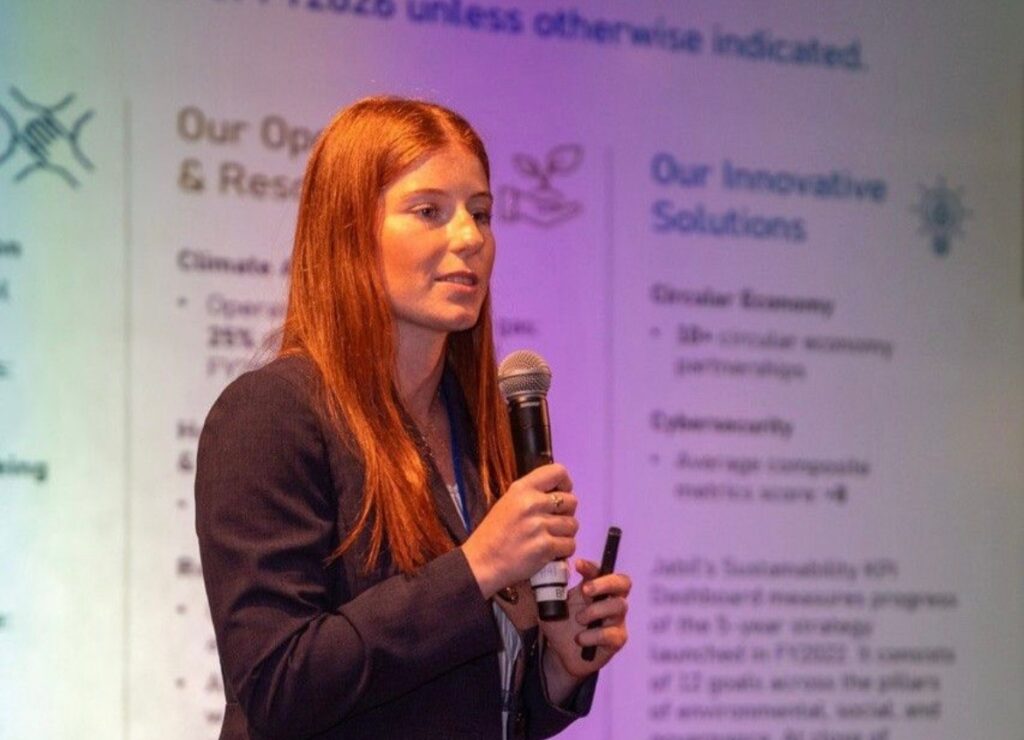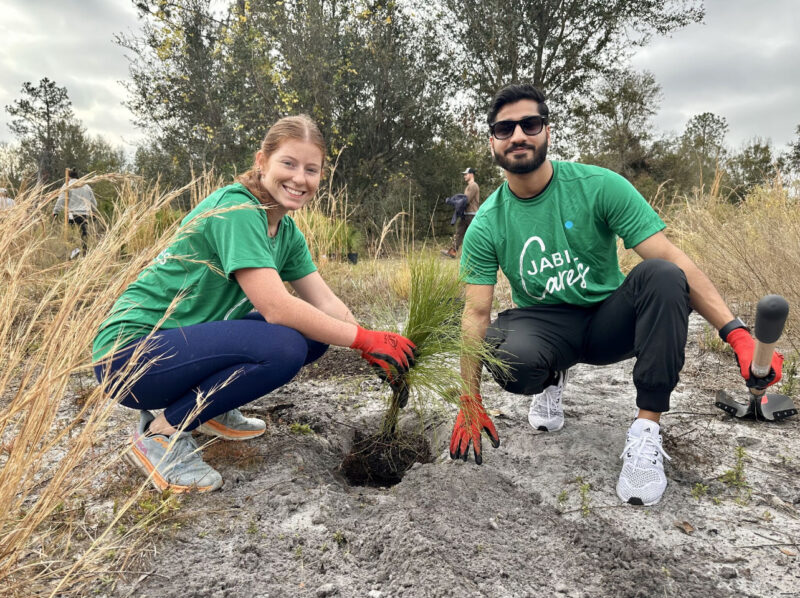By Mahika Kukday
When Nicole Andersen was gearing up to graduate from the University of South Florida last year, she was also picturing her future employer, but the image in her head didn’t look like what it used to for previous generations.
At 22, Andersen is part of Generation Z, those born between 1997 and 2012. As of August 2024, Gen Z made up 18% of the U.S. workforce, according to the Department of Labor, and they’re prioritizing more than just a paycheck.
“I feel like there’s a lot more of an expectation in Gen Z for employers that they work for to give back to their communities and step up,” Andersen said.
She’s a global sustainability compliance associate at Jabil, a global manufacturing company headquartered in St. Petersburg. The Fortune 500 corporation has been known to be welcoming to young talent, often hiring recent graduates and former interns.
Since environmental science and policy was what Andersen earned her bachelor’s degree in at USF, she wanted to work for a company that “believed in their sustainability initiatives and didn’t do them just for show.”

In her role, Andersen has spoken at international sustainability conferences, contributed to the company’s annual sustainability progress report, and more.
She said she feels that people her age value ethics, community involvement and work-life balance more than previous generations.
Abdul Muqeet Khawaja is a financial reporting analyst at Jabil, where he converted his internship into a full-time offer like Andersen.
One factor that he placed a lot of importance on when deciding where to start his career was “having a team that I can work eight hours of the day, every day, for five days a week.”
Khawaja said he feels that previous generations often compromised on work culture, but Gen Z emphasizes the need for a collaborative environment where engaging with colleagues feels “authentic and natural.”
He said his generation isn’t buying into the stereotypes of corporate life.
“I feel like corporate has the sort of reputation that you just put in all this work, and it doesn’t mean anything,” Andersen said.
Jabil Talent Acquisitions Manager Kira Day said that she works with her team to make sure their younger employees know how much they’re valued.
“They come to work and they’re always putting their best foot forward,” Day said. “They’re working on assignments even in more efficient ways, I would say, because they’re used to working with different technologies. In this day and age, you’ve got computers and tablets in school.”
By conducting recurring one-on-one meetings with her team, Day is able to stay in touch with her young employees’ needs and understand the trajectory they want for their careers.
Andersen said she believes this open communication helps her feel recognized for her work, and Khawaja also echoed the need for meaningful assignments.
“The important thing for me was not to just be given busy work, but to be thrown in the weeds of the projects,” he said.
Khawaja was chosen to lead meetings with stakeholders in Asia, even during his internship, which he said was “really fulfilling.”
He came to India as an international student from Pakistan, and he said Jabil’s welcoming attitude and already diverse team made him feel welcome and appreciated.
“This is a very individualistic generation in my opinion,” said Dwayne Peterson, USF’s director of industry to campus connections. “They really want to be able to be seen authentically in every space. This is a generation that’s being very unforgiving about that.”
Peterson bridges the gap between employers and job-seeking students at USF, and he said, in his experience working with Gen-Z, he’s learnt that they’re much less willing than previous generations to be “one person at work and one person at home.”
While Gen Z calls for transparency in everything from salary expectations to internal policy, Peterson said it’s allowed smaller or medium-sized companies that are willing to have that open communication to break into the market.
Peterson said that while previous generations often cared more about a company name, those legacy companies with more traditional values are being forced to adapt.
According to Forbes, feeling psychologically and physically safe is something that Gen-Z cares more about and are more willing to speak on than previous generations.
According to Day, Jabil has been eager to adapt, with the company offering two paid time off mental health days and having wellness centers and gyms onsite.
Gen Z has had to navigate the effects of the 2008 recession and the COVID-19 pandemic, facing an overwhelming economic and technological age, according to Peterson.
As they enter the workforce and begin their careers, Peterson said it’s “really a generation that’s starting to press on the way it’s always been done.”
